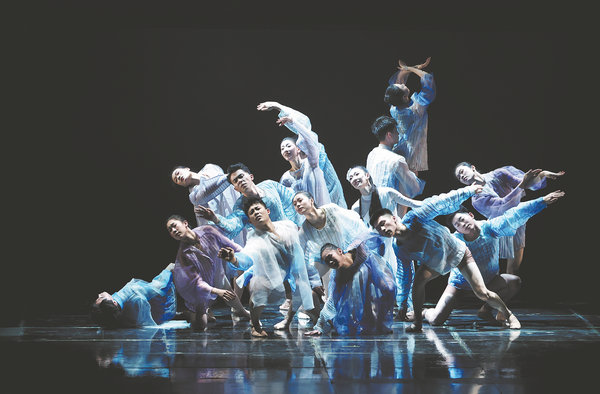

Xue Tingzhe can still recall his first piano lesson with his Japanese teacher when he was 6, after he had moved to Japan with his parents, who were pursuing medical degrees. The teacher, Osmi Emi, in Tokyo, had Xue listen to three pieces of music and asked him to choose his favorite. Then, she gave him a piece of paper and a pencil, and asked him to draw the pictures he saw after listening to it.
"I remember that I drew some birds, clouds and a street. We colored them together," Xue says. "It was so much fun when the piano lessons became art class. It wasn't boring at all."
Xue, who was born in Nanjing, Jiangsu province, started learning to play the piano when he was 5, and says that his Japanese teacher asked him to put the score and the painting side by side when he practiced.
"For the first time, I felt that I was connected to the music I played, because I'd chosen the piece and my painting was inspired by it," says the 34-year-old.
Xue returned to China when he was 12 and studied with veteran music educator and pianist Dan Zhaoyi at the Shenzhen Arts School. Xue went on to win a number of international music competitions, including first prize in the youth section of the third Isidor Bajic Piano Memorial Competition in Serbia in 2006, which led him to perform 12 concerts in Europe in commemoration of the 250th anniversary of the birth of Mozart later that year.
The experience in Japan was like a seed planted in Xue's heart. From then on, music evoked not only an emotional response but also a visual one closely linked with those emotions.